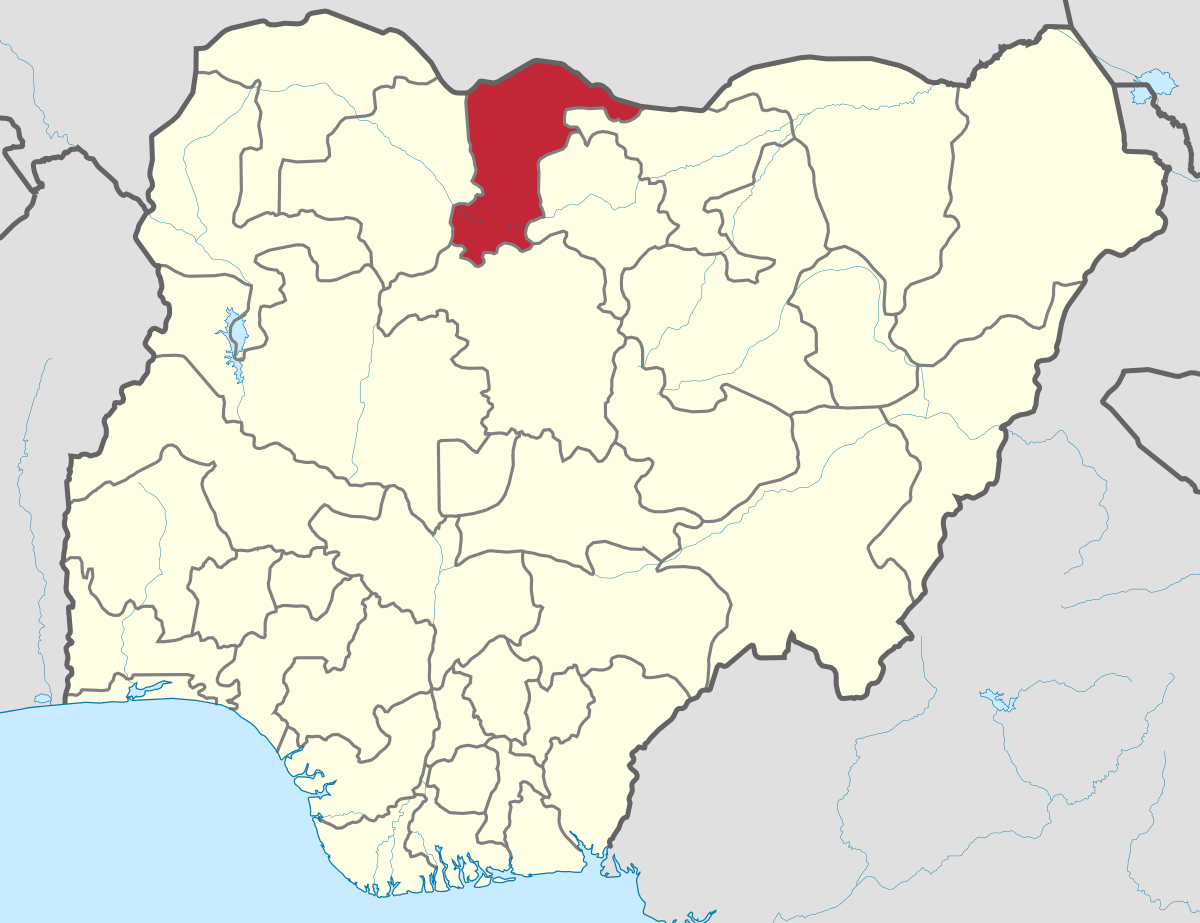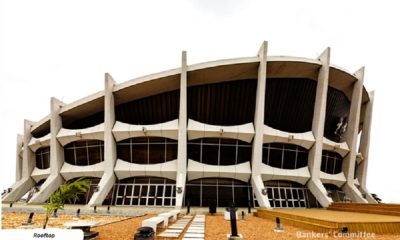Economy
Access Bank Increases Dividend as 2020 Earnings Rise 15%

By Dipo Olowookere
Access Bank Plc has surprised its shareholders by increasing its final dividend payout for the year 2020 by 37.5 per cent or 15 kobo to 55 kobo from 40 kobo.
The bank, led by Mr Herbert Wigwe, is not known to pay a huge dividend like its two other tier-1 peers, GTBank and Zenith Bank, which paid N2.70 each.
In the financial statements for the year ended December 31, 2020, the lender said it intends to pay a final dividend of 55 kobo on Friday, April 30, 2021, to shareholders whose names appear on the register of members as at the close of business on Thursday, April 15, 2021.
If the cash reward is approved by shareholders at the company’s Annual General Meeting (AGM) fixed for Friday, April 30, 2021, at the Access Towers at Oniru Estate, Victoria Island, Lagos, the total dividend for the year would be 80 kobo. The bank had earlier paid an interim dividend of 25 kobo last year.
The year 2020 was very challenging for most businesses across the globe because of the COVID-19 pandemic, which forced many countries to declare a lockdown.
But in the midst of this, Access Bank managed to grow its earnings by almost 15 per cent, precisely by 14.7 per cent to N764.7 billion from N666.8 billion recorded a year earlier.
A brief analysis of the results by Business Post indicated that the financial institution recorded a decline in its interest income to N425.7 billion from N453.6 billion.
Also, the interest expense went down to N226.3 billion from N259.6 billion, leaving the net interest income lower at N263.0 billion as against the previous year’s N277.2 billion.
With a net impairment charge of N62.9 billion versus N20.2 billion in FY 2019, the net interest income after impairment charges dropped to N200.1 billion from N257.0 billion.
However, in the year under review, fee and commission income increased to N116.7 billion from N91.9 billion as a result of the significant rise in the revenue generated from its electronic banking channels (N56.1 billion versus N36.0 billion in 2019).
There was also a spike in credit-related fees and commissions (N32.5 billion versus N26.6 billion). The bank generated N15.1 billion from account maintenance charges and handling commission, higher than N14.0 billion raked from the means a year earlier.
In the year, Access Bank said it reduced its personnel expenses to N73.2 billion from N77.0 billion in 2019 and this was from the wage cut announced by Mr Wigwe last, which almost put the bank in trouble after a video he had with members of staff on this issue went viral.
Last, the lender said its wages and salaries gulped N69.0 billion in contrast to N73.2 billion used for the same purpose in 2019.
Despite some of its employees working from home as a result of the government’s directives on the restriction of movement in 2020 due to COVID-19, the other operating expenses of Access Bank rose to N215.8 billion from N151.1 billion.
The bank explained that it was because of the rise in premises and equipment costs (N15.6 billion versus N13.4 billion in 2019), AMCON surcharge of N35.4 billion in contrast to the previous year’s N22.7 billion, administrative costs of N15.5 billion as against N11.4 billion in 2019, communication expenses of N7.5 billion versus N3.3 billion in 2019, IT and e-business costs of N18.7 billion compared with N9.8 billion a year earlier, outsourcing costs of N25.1 billion versus N16.7 billion in 2019, advertisement and marketing expenses of N11.3 billion in contrast to N6.3 billion recorded a year earlier, security costs of N7.9 billion as against N4.3 billion in 2019 and stationeries, postage and printing expenses of N5.9 billion versus N1.9 billion the preceding year.
These expenses and others left Access Bank with a profit before tax of N125.9 billion in 2020 as against N111.9 billion in 2019, while the profit after tax closed at N106.0 billion versus N94.1 billion a year earlier.
In the period under consideration, the earnings per share (EPS) of Access Bank rose to N3.01 from N2.79, while the total assets increased to N8.7 trillion from N7.1 trillion, with the total liabilities jumping to N7.9 trillion from N6.5 trillion. A part of the liabilities had N5.6 trillion as customer deposits, higher than N4.2 trillion in 2019.
Economy
Why Transparency Matters in Your Choice of a Financial Broker

Choosing a Forex broker is essentially picking a partner to hold the wallet. In 2026, the market is flooded with flashy ads promising massive leverage and “zero fees,” but most of that is just noise. Real transparency is becoming a rare commodity. It isn’t just a corporate buzzword; it’s the only way a trader can be sure they aren’t playing against a stacked deck. If a broker’s operations are a black box, the trader is flying blind, which is a guaranteed way to blow an account.
The Scam of “Zero Commissions”
The first place transparency falls apart is in the pricing. Many brokers scream about “zero commissions” to get people through the door, but they aren’t running a charity. If they aren’t charging a flat fee, they are almost certainly hiding their profit in bloated spreads or “slippage.” A trader might hit buy at one price and get filled at a significantly worse one without any explanation. This acts as a silent tax on every trade. A transparent broker doesn’t hide the bill; they provide a live, auditable breakdown of costs so the trader can actually calculate their edge.
The Conflict of Market Making
It is vital to know who is on the other side of the screen. Many brokers act as “Market Makers,” which is a polite way of saying they win when the trader loses. This creates a massive conflict of interest. There is little incentive for a broker to provide fast execution if a client’s profit hurts their own bottom line. A broker with nothing to hide is open about using an ECN or STP model, simply passing orders to the big banks and taking a small, visible fee. If a broker refuses to disclose their execution model, they are likely betting against their own clients.
Regulation as a Safety Net
Transparency is worthless without an actual watchdog. A broker that values its reputation leads with its licenses from heavy-hitters like the FCA or ASIC. They don’t bury their regulatory status in the fine print or hide behind “offshore” jurisdictions with zero oversight. More importantly, they provide proof that client funds are kept in segregated accounts. This ensures that if the broker goes bust, the money doesn’t go to their creditors—it stays with the trader. Without this level of openness, capital is essentially unprotected.
The Withdrawal Litmus Test
The ultimate test of a broker’s transparency is how they handle the exit. There are countless horror stories of traders growing an account only to find that “technical errors” or vague “bonus terms” prevent them from withdrawing their money. A legitimate broker has clear, public rules for getting funds out and doesn’t hide behind a wall of unreturned emails. If a platform makes it difficult to see the exit strategy, it’s a sign that the front door should have stayed closed.
Conclusion
In 2026, honesty is the most valuable feature a broker can offer. It is the foundation that allows a trader to focus on the charts instead of worrying if their stops are being hunted. Finding a partner with clear pricing, honest execution, and real regulation is the first trade that has to be won. Flashy marketing is easy to find, but transparency is what actually keeps a trader in the game for the long haul.
Economy
Nigeria’s Stock Market Indices Shrink 0.41% Amid Panic Sell-Offs

By Dipo Olowookere
The Nigerian Exchange (NGX) Limited came under panic sell-offs on Thursday, as the investing community awaits the outcome of a probe into trading activities around one of the stocks on the bourse.
On Monday, trading in Zichis equities was prohibited by the regulator after it gained almost 900 per cent in one month of being listed by introduction on the growth board of the exchange.
This action triggered cautious trading on Customs Street, and things have not remained the same since then.
Yesterday, the key performance indices of the Nigerian bourse further depreciated by 0.41 per cent, the third straight loss this week, as investors book profit before being trapped.
It was observed that the energy industry gained 0.12 per cent and was the only one in green, as the industrial goods space shed 1.19 per cent, the banking counter depreciated by 0.63 per cent, the insurance sector lost 0.32 per cent, and the consumer goods segment tumbled by 0.03 per cent.
As a result, the All-Share Index (ASI) contracted by 802.39 points to 193,567.81 points from 194,370.20 points, and the market capitalisation decreased by N515 billion to N124.239 trillion from N124.754 trillion.
During the session, investors traded 868.5 million shares worth N31.5 billion in 69,310 deals compared with the 1.4 billion shares valued at N46.2 billion exchanged in 70,222 deals at midweek, showing a drop in the trading volume, value, and number of deals by 37.96 per cent, 31.82 per cent, and 1.30 per cent, respectively.
Jaiz Bank led the activity chart with 78.9 million equities valued at N1.2 billion, Japaul traded 73.3 million stocks worth N274.8 million, Access Holdings exchanged 66.9 million shares for N1.7 billion, Chams sold 56.9 million equities worth N239.6 million, and Zenith Bank transacted 45.5 million stocks valued at N4.1 billion.
The worst-performing stock for the day was Jaiz Bank after it lost 9.98 per cent to trade at N12.63, Ikeja Hotel declined by 9.90 per cent to N37.75, John Holt shrank by 9.90 per cent to N8.65, Enamelware slipped by 9.88 per cent to N36.50, and Cadbury went down by 9.69 per cent to N61.95.
On the flip side, FTN Cocoa was the best-performing stock after it gained 10.00 per cent to sell for N6.05, RT Briscoe improved by 9.95 per cent to N11.38, Deap Capital soared 9.92 per cent to N6.98, Japaul grew by 9.91 per cent to N3.77, and Ellah Lakes surged 9.72 per cent to N11.85.
Investor sentiment remained bearish as the exchange finished with 30 price gainers and 38 price losers, implying a negative market breadth index.
Economy
Champion Breweries Concludes Bullet Brand Portfolio Acquisition

By Aduragbemi Omiyale
The acquisition of the Bullet brand portfolio from Sun Mark has been completed by Champion Breweries Plc, a statement from the company confirms.
This marks a transformative milestone in the organisation’s strategic expansion into a diversified, pan-African beverage platform.
With this development, Champion Breweries now owns the Bullet brand assets, trademarks, formulations, and commercial rights globally through an asset carve-out structure.
The assets are held in a newly incorporated entity in the Netherlands, in which Champion Breweries holds a majority interest, while Vinar N.V., the majority shareholder of Sun Mark, retains a minority stake.
Bullet products are currently distributed in 14 African markets, positioning Champion Breweries to scale beyond Nigeria in the high-growth ready-to-drink (RTD) alcoholic and energy drink segments.
This expansion significantly broadens the brewer’s addressable market and strengthens its revenue base with an established, profitable portfolio that already enjoys strong brand recognition and consumer loyalty across multiple markets.
“The successful completion of our public equity raises, together with the formal close of the Bullet acquisition, marks a defining moment for Champion Breweries.
“The support we received from both existing shareholders and new investors reflects strong confidence in our long-term strategy to build a diversified, high-growth beverage platform with pan-African scale.
“Our focus now is on disciplined execution, integration, and delivering sustained value across markets,” the chairman of Champion Breweries, Mr Imo-Abasi Jacob, stated.
Through this transaction, Champion Breweries is expected to achieve enhanced foreign exchange earnings, expanded distribution leverage across African markets, integrated supply chain efficiencies, portfolio diversification into high‑growth consumer beverage categories, and strengthened presence in the RTD and energy drink segments.
The acquisition accelerates Champion Breweries’ transition from a regional brewing business to a multi-category consumer platform with continental reach.
Bullet Black is Nigeria’s leading ready-to-drink alcoholic beverage, while Bullet Blue has built a strong presence in the energy drink category across several African markets.
-

 Feature/OPED6 years ago
Feature/OPED6 years agoDavos was Different this year
-
Travel/Tourism10 years ago
Lagos Seals Western Lodge Hotel In Ikorodu
-

 Showbiz3 years ago
Showbiz3 years agoEstranged Lover Releases Videos of Empress Njamah Bathing
-

 Banking8 years ago
Banking8 years agoSort Codes of GTBank Branches in Nigeria
-

 Economy3 years ago
Economy3 years agoSubsidy Removal: CNG at N130 Per Litre Cheaper Than Petrol—IPMAN
-

 Banking3 years ago
Banking3 years agoSort Codes of UBA Branches in Nigeria
-

 Banking3 years ago
Banking3 years agoFirst Bank Announces Planned Downtime
-

 Sports3 years ago
Sports3 years agoHighest Paid Nigerian Footballer – How Much Do Nigerian Footballers Earn























